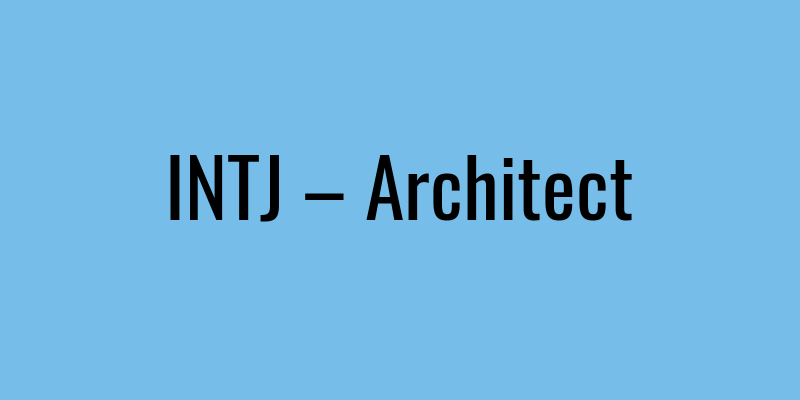Unlocking the INTJ – Architect: The Genius Behind the Mind
Delve into the strengths and challenges faced by the INTJ personality
The INTJ personality type, often referred to as the Architect, is known for its strategic thinking, high standards, and deep insights. Individuals with this personality type are independent and highly ambitious, often seen as visionaries due to their ability to see the big picture and devise innovative solutions to complex problems. But while INTJs have unique strengths that make them stand out, they also face specific challenges that can impact their relationships and professional lives. This article will explore both the advantages and disadvantages of being an INTJ – Architect, providing a well-rounded view of this intriguing personality type.
Understanding the intricacies of the INTJ personality can help both INTJs and those around them navigate the complexities of their interactions. As one of the rarest personality types, INTJs embody a blend of logic and creativity that drives them to pursue knowledge and mastery in their chosen fields. They thrive in environments that challenge them intellectually and encourage independence. However, their high expectations can sometimes lead to misunderstandings, particularly in social situations. Let's dive deeper into the benefits and drawbacks of being an INTJ to understand them better and facilitate more meaningful communication.
Pros
INTJs possess a remarkable set of strengths that enable them to excel in various fields, from science to technology and beyond. Their unique blend of analytical skills and creative problem-solving abilities sets them apart as natural leaders and innovators. This section will illuminate the key advantages of being an INTJ – Architect, showcasing how their traits allow them to thrive and contribute significantly to their surroundings.
Visionary Thinkers with Strategic Insight
One of the hallmark traits of INTJs is their ability to think long-term and see the bigger picture. They often possess a clear vision of what they want to achieve and can strategize effectively to reach their goals. This strategic insight allows them to identify potential obstacles and devise plans that account for various scenarios, making them highly effective problem-solvers in both personal and professional settings. Their forward-thinking nature empowers them to innovate and drive positive change, making them invaluable assets to any team or organization.
Independent and Self-Motivated
INTJs are known for their independence and self-motivation, which often helps them achieve their goals without needing external validation. This self-reliance enables them to pursue their interests deeply and develop expertise in their chosen fields. Their ability to work autonomously means they often produce exceptional results, as they can focus their energy and creativity without being distracted by external opinions. This independence is critical when navigating complex challenges, as INTJs often prefer to rely on their judgment and skills rather than conform to conventional methods.
Analytical and Objective Decision-Makers
The INTJ personality type excels at analytical thinking and making objective decisions. They can break down complex problems into manageable components and assess them logically. Their inclination to prioritize facts and information over emotions allows them to maintain clarity in decision-making, which can benefit teams that rely on data-driven approaches. This ability often positions INTJs as logical leaders, particularly in fields that require careful analysis, such as science, engineering, or finance.
Natural Problem Solvers
INTJs possess a unique ability to dissect complex problems and develop effective solutions. They approach challenges methodically, often identifying underlying issues that others may overlook. Their logical reasoning and critical thinking skills enable them to construct detailed strategies that address both immediate concerns and long-term goals. This intrinsic problem-solving capability makes them valuable assets in professional environments, where innovative thinking and efficient solutions are often in high demand.
Strong Commitment to Personal Growth
INTJs are often devoted to continuous self-improvement and learning. They regularly seek out new knowledge, skills, and experiences, which allows them to adapt to changing circumstances. This commitment to personal growth not only enhances their own capabilities but often inspires those around them to pursue their own development. As lifelong learners, INTJs tend to stay well-informed about their fields of interest, making them expert contributors in discussions and projects.
Visionary Leadership
INTJs often possess a clear vision for the future, making them effective leaders. Their strategic mindset allows them to articulate long-term goals and inspire others to work toward these objectives. They are not afraid to make tough decisions and take calculated risks, which can guide teams to innovative solutions. Their confidence in their vision motivates others to collaborate and contribute to common goals, positioning INTJs as natural leaders in both professional and personal contexts.
Missing a pro?
Let us know which pro you are missing!
Cons
While INTJs possess numerous strengths, they also encounter challenges that can complicate their lives and relationships. Understanding these disadvantages is vital for INTJs aiming to improve communication with others and navigate social situations more effectively. This section will explore the common struggles INTJs face, shedding light on the potential pitfalls and how they can be managed.
Difficulty in Expressing Emotions
One significant challenge INTJs often face is their difficulty in expressing emotions. They may struggle to share their feelings or connect with others on an emotional level, leading to misunderstandings and feelings of isolation. Their analytical nature can sometimes overshadow their emotional side, making it hard for them to relate to individuals who prioritize emotional communication. This inability to express feelings can impact relationships, particularly in romantic and social settings, where emotional vulnerability is essential for connection.
High Expectations Can Lead to Frustration
INTJs are known for their high standards, both for themselves and others. While this trait can drive excellence, it can also lead to frustration and disappointment when others fail to meet these expectations. INTJs may find themselves in conflict with colleagues, friends, or partners who do not share their level of commitment or vision, causing tension in those relationships. This tendency can also lead to feelings of burnout, as they push themselves to maintain these high standards, resulting in stress and dissatisfaction.
Struggles with Social Interactions
Social interactions can often be challenging for INTJs. They may feel uncomfortable in social situations, particularly in larger groups, where small talk and superficial conversations can seem pointless. This discomfort can lead to social withdrawal, further exacerbating their feelings of isolation. Additionally, their straightforward communication style can sometimes be perceived as blunt or insensitive, creating barriers in building strong social relationships. Navigating these dynamics can be a significant source of struggle for many INTJs.
Perceived as Arrogant
Due to their confidence in their analytical abilities and insights, INTJs can sometimes come across as arrogant or condescending to others. This perception may stem from their tendency to assert their opinions strongly, especially when discussing topics they are passionate about. As a result, their interactions may lead to misunderstandings and strained relationships. It's important for INTJs to consciously work on communication skills to avoid alienating colleagues or friends.
Overly Critical Mindset
INTJs can have a tendency to be overly critical, both of themselves and others. Their high standards can lead to incessant evaluation and skepticism regarding the efficiency of methods or ideas presented by their peers. This critical nature can create a sense of discomfort or tension in collaborative environments, where team members might feel their contributions are inadequately appreciated. Striking a balance between constructive criticism and support is crucial for INTJs to foster healthy professional relationships.
Difficulty Delegating Tasks
INTJs often prefer to take control of projects and tasks, which can lead to difficulty in delegating responsibilities to others. They may feel that nobody can execute tasks as effectively as they can, causing them to take on more than they can handle. This habit can lead to burnout and hinder teamwork, as it may deprive their colleagues of opportunities to contribute fully. To improve collaboration and efficiency, INTJs should work on building trust in their team members' abilities.
Missing a con?
Let us know which con you are missing!
Conclusion
In summary, the INTJ – Architect personality exhibits a rich combination of exceptional strengths and notable challenges. While their strategic thinking, independence, and analytical abilities empower them to achieve remarkable success, their struggles with emotional expression and social interactions can create hurdles in their personal and professional lives. By understanding both the advantages and disadvantages of being an INTJ, individuals with this personality type can learn to leverage their strengths while also addressing their challenges. This holistic understanding fosters growth, improving relationships, and enhancing overall well-being.
What do you think?
Do you think the pros outweigh the cons?










